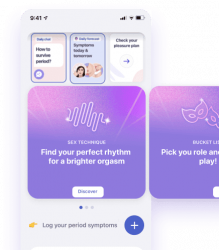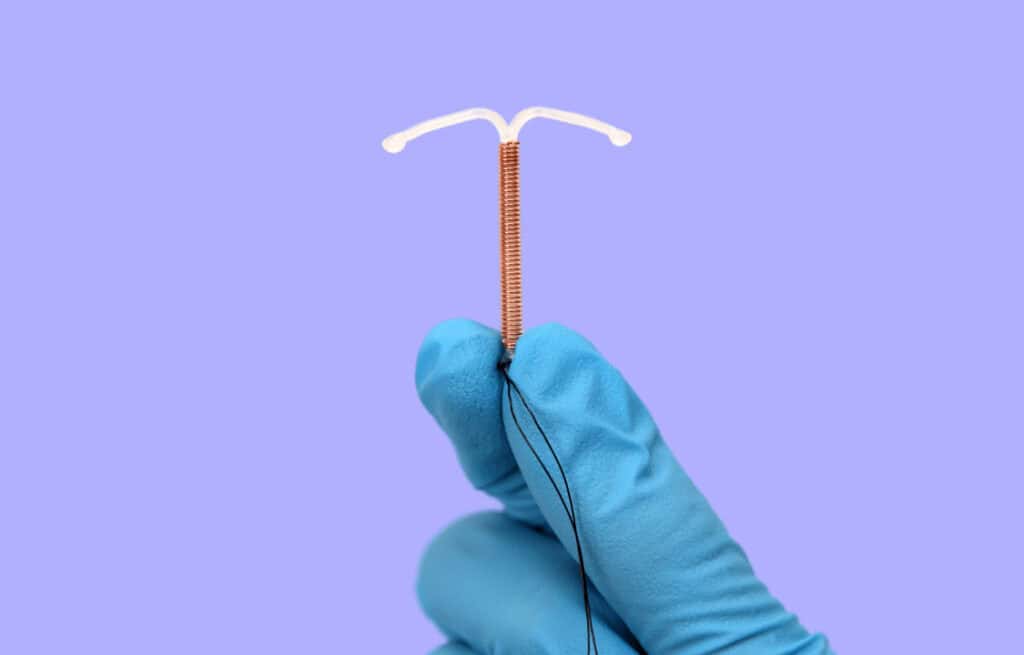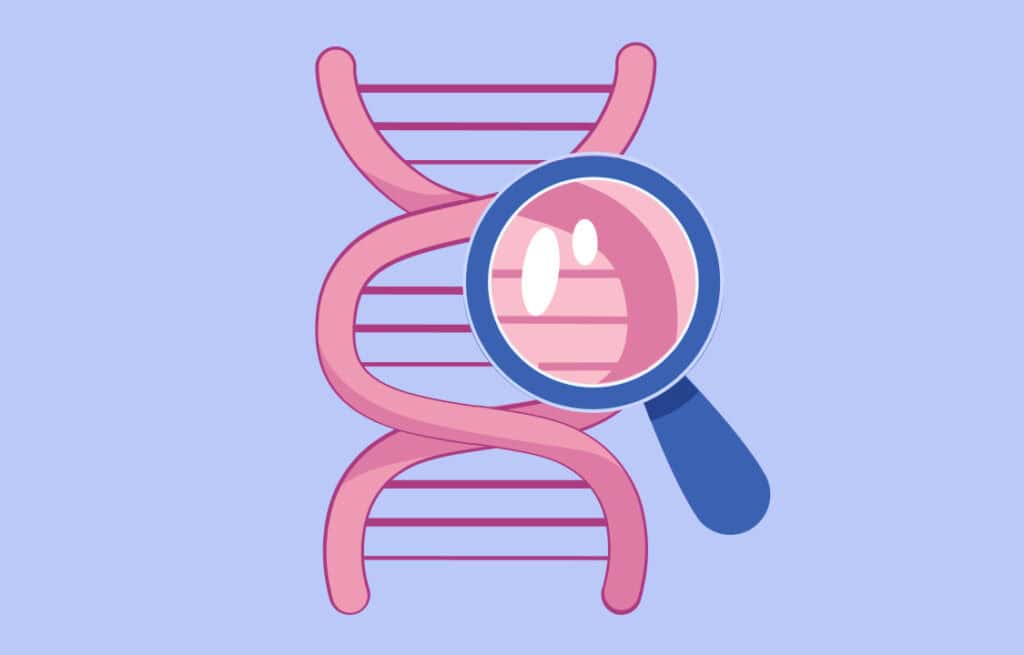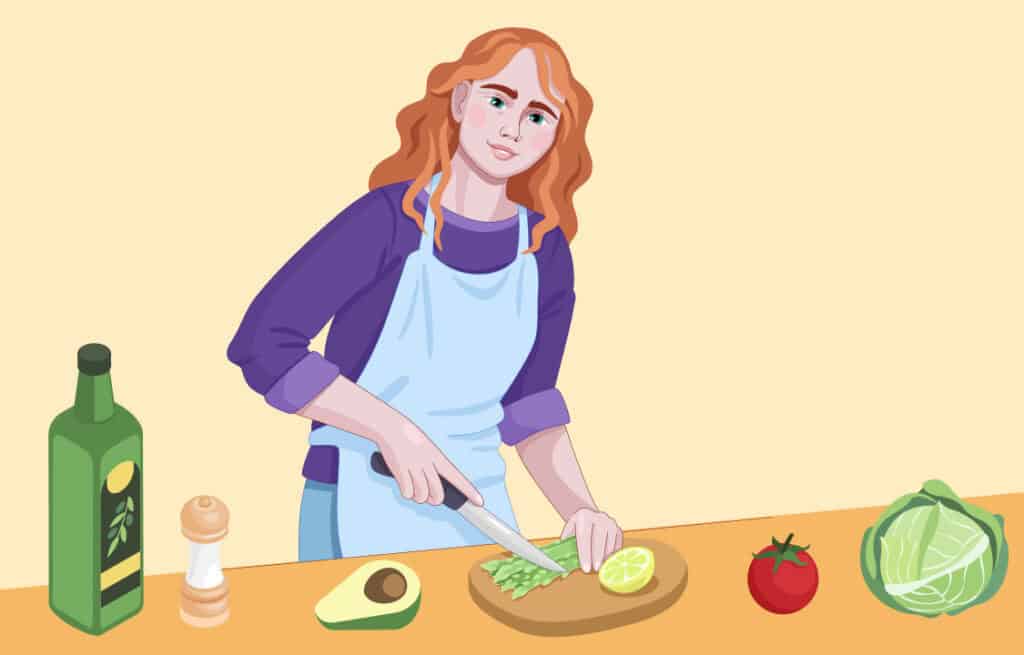Femia > Health Library > Your cycle > Sex > Does ovulation make you horny? Understanding the link between ovulation and libido
Does ovulation make you horny? Understanding the link between ovulation and libido

- Updated Mar 2, 2025
- Published
CRAFTED BY HUMAN
Crafted by human At Femia, we provide accurate and up-to-date information at every stage of your journey, from trying to conceive, pregnancy and postnatal support. All content is created by a real person based on in-depth research and own professional experience. Femia ensures that you will receive expert advice, strict accuracy and a personalized approach from our authors/medical experts. Learn more about our editorial policy.
FACT CHECKED
Fact checked At Femia Health, we maintain the highest standards of editorial excellence in delivering content focused on helping you conceive, guiding you through pregnancy, and supporting you postpartum. Explore our content review principles to learn how we ensure the accuracy and quality of our health and lifestyle tips for every stage of your journey.

Created with Hector Chapa, MD, FACOG, Clinical associate professor, Obstetrics and Gynecology Texas A&M University, College of Medicine in Bryan-College Station, USA
- Does ovulating make you horny? Yes, it might. Many women experience increased sex drive during ovulation, about two weeks before their period.
- This is primarily due to hormonal changes, especially peaks in estrogen and luteinizing hormone (LH).
- Ovulation can also bring increased energy, heightened sensitivity, and stronger interest in sex.
At times, sex is the last thing on your mind, but on other days, it feels like you can’t think about anything else. Have you been wondering what drives these instincts?
There’s nothing wrong with flaming sexual desire. But, you might notice that it gets particularly out of hand during a certain time of the month, when hormonal shifts trigger ovulation and your fertility skyrockets. This rollercoaster happens about two weeks before you get on your period. For many of you, this might be an “Aha!” moment.
According to actual research, women experience a spike in sex drive during ovulation. Both heterosexual and queer women report an increase in self-perceived attractiveness, frequent sexual fantasies, and the desire to pleasure themselves around this time.
So, does ovulation make you horny, really? Well, it could. Sex drive is very fluid. Many factors can impact it, including your mental health, sleep pattern, alcohol, drugs, exercise, medication, and more. With that being said, you are on the right track with questioning the impact of the menstrual cycle on your libido.
Spoiler alert: it’s a big one.

The science behind ovulation and libido
Ovulation is a natural part of your menstrual cycle—a series of changes your body goes through each month to prepare for a possible pregnancy. The way your body adapts reflects a complex interplay of sex hormones, which guide the four phases of the menstrual cycle:
- Follicular phase: Estrogen and follicular stimulating hormone (FSH) levels start to increase. Follicles in your ovaries grow, while the uterus lining thickens.
- Ovulation: An increase in LH levels makes the egg pop from the follicle—a process also known as ovulation. Estrogen levels also peak around this time, before dropping until the next cycle.
- Luteal phase: After ovulation, the popped follicle transforms into a structure called the corpus luteum, which produces progesterone. Progesterone helps thicken the uterine lining further, in case a fertilized egg gets implanted. If this doesn’t happen, progesterone levels decrease.
- Menses phase: This is the time of menstrual bleeding, which marks the beginning of a new cycle. Low levels of both estrogen and progesterone signal the body to start shedding the uterine lining.
Blame it all on the hormones! But, what hormone makes you horny? Scientists believe that estrogen and LH influence sexual desire by increasing libido and enhancing genital sensitivity. Estrogen-only therapy, even in postmenopausal women, may cause extra friskiness.
👉Find out more: Can you squirt after menopause? The ultimate guide to sex and orgasms after menopause
Let’s also not forget about the psychological factors, which may partly be modulated by hormonal shifts. Estrogen positively affects mood and energy levels, which can give you that extra allure and boost your confidence. According to a 2015 review, women tend to show greater interest in sex and initiate sex more often just before ovulation.
Even though babies may not be your prime focus, nature has its ways of encouraging reproduction. The mid-cycle sex craze comes with a peak in fertility, which contributes to an increased likelihood of conception. From an evolutionary perspective, ”feeling the heat” is just another biological mechanism to prolong the species.
👉Find out more: First time sex tips: How to make your first time pleasurable and painless
Does testosterone increase horniness in women?
Testosterone is a male sex hormone, and estrogen is the female hormone—but, is it all that simple? Not really. Both men and women produce estrogen and testosterone, and balance is always the key.
Whether testosterone impacts your sexual desire is the topic of ongoing scientific debate. Although not FDA-approved, healthcare providers often prescribe testosterone off-label to treat low libido in women.
Research shows that higher-than-normal levels of testosterone, along with estrogen therapy, can increase sex drive in postmenopausal women. However, testosterone is not the magic key to female pleasure. Another study suggests first examining the other factors that shape female sexual desire, although the authors conclude that some women with sexual arousal problems may benefit from a little testosterone boost.
👉Find out more: Boosting your fertility: Tips for getting pregnant in your 30s
@femia.fertility What happens to your libido after ovulation? #ovulation #fertilewindow #fertility #fertilityjourney #wantababy #ttc #ttcjourney #ttcmeme #ttchumour #capcutmeme #fertilitytracker #libido #ovulationsymptom ♬ original sound - Femia fertility app
What to expect during ovulation
If you are not a person who likes surprises, it’s better to know what’s coming. Ovulation brings a vast array of physical and psychological symptoms, not just increased sex drive. Here are some common changes you might experience mid-cycle.
- Increased energy. Have a bunch of errands to run? A job interview to prepare for? A surge of estrogen and LH might make you more active and motivated to tackle challenges in your life, whether professional, social, or romantic.
- Heightened sensitivity. On the other hand, that Superwoman energy might be interrupted by an occasional meltdown and cry session. Embrace the emotions, and enjoy the ride.
- Stronger interest in sex. Not only is your sex drive driving you at the moment, but it might also make it a worthwhile ride. Hormonal fluctuations might make your genitals more easily aroused and sensitive to touch. One more reason to go with your body flow.
If you feel horny during ovulation, remember that the sensation is completely normal. These physical and emotional changes are a natural part of the menstrual cycle and can vary in intensity from person to person and from cycle to cycle.
👉Find out more: Why do I feel sick after sex? Understanding post-sex nausea in women
Managing increased libido
You already know the best way to calm your urges. But, here are some more sophisticated ways of handling your increased libido during ovulation:
- Be prepared. Know what is coming and when. You can predict the ovulation horny time by tracking your menstrual cycle through apps or calendars. Knowing your body’s rhythms can help you feel more in control and ready for the upcoming changes.
- Embrace it. Instead of feeling overwhelmed by your sex drive during ovulation, try to embrace it as a natural and healthy part of your body’s cycle. This heightened desire can be a time to explore new forms of intimacy or deepen the connection with your partner. If you’re trying to conceive, this is a lucky time to be in the mood, but even if not, it’s a chance to have fun.
- Talk to your partner. Let them know what’s up. Your partner is more likely to respond in an accommodating way if they know how ovulation makes you feel. This is a good chance to become more intimate (not just physically!) and form a deeper connection. It’s easy to get lost in the moment, but don’t forget about birth control if you are not trying to conceive.
- Manage your (s)expectations. Sometimes, you and your partner may not be on the same page, sex-wise. If you feel that your sexual needs are causing stress and friction in your relationship, consider talking about it with a couples therapist.
- Self-care moments. Make time for self-care practices that make you feel good, both physically and emotionally. You can exercise to release all that extra energy or go out and spend time with friends. Self-care can also entail solo exploration of your desires, helping you connect with your body and understand what feels pleasurable. If you have a special itch, why not scratch it yourself?
👉Find out more: Vabbing: What it is and how it works

Questions from the Femia community
Does birth control affect my libido during ovulation?
While it's possible for hormonal birth control pills to decrease libido, it's a complex issue. Some women have reported no change or even an increase in libido, as well as a decrease. Libido is also influenced by factors like social stress and relationships, making it hard to draw conclusions about the pill's effect on its own.
Yes, hormonal birth control (pills containing estrogen and progestins) can suppress ovulation by changing the hormonal cascade that triggers it. No ovulation means that the natural libido spike that some women experience during their fertile window will not happen.
Some studies have stated an increase in libido. In a 2013 review of studies published since the 1970s on the pill and sexual function, researchers found that more than 6 in 10 people using the pill had no changes in libido, more than 2 in 10 had an increase in libido, and about 1 in 10 did report a decrease in libido.
Is it normal that I sometimes feel emotional or irritable during ovulation?
While some women experience heightened libido during ovulation, others may not be so lucky. Hormonal fluctuations may also make you feel more emotional or irritable around this time. It's all part of how individual bodies react to the ovulation phase.
I have an increased libido during ovulation, does it indicate higher fertility?
Although high libido is one of the signs that your body is going through its most fertile phase, it may not directly impact your fertility status. An increased libido is just one of many factors that might align with higher fertility.
The bottom line
You might be relieved to learn that the lustful mid-cycle feeling is something many women find hard to avoid. Think of this as a sign of good health, sort of like red cheeks—the blood just goes somewhere else.
If you don’t want to be caught up at a family reunion when this happens, we recommend tracking your cycle (and planning your dates accordingly). Embrace your elevated sexual desire as just another positive aspect of the female body. Why not play with that sexual energy?
Make sure to communicate your needs openly with your partner, and prioritize self-care. Whether you’re trying to conceive or not, being attuned to your body’s signals and embracing these changes can lead to a more fulfilling and empowered connection with your sexual health.
References
- Cappelletti, Maurand, and Kim Wallen. “Increasing Women’s Sexual Desire: The Comparative Effectiveness of Estrogens and Androgens.” Hormones and Behavior, vol. 78, Feb. 2016, pp. 178–93. PubMed Central, https://doi.org/10.1016/j.yhbeh.2015.11.003.
- Hatcher, Robert A., and Deborah Kowal. “Birth Control.” Clinical Methods: The History, Physical, and Laboratory Examinations, edited by H. Kenneth Walker et al., 3rd ed., Butterworths, 1990. PubMed, http://www.ncbi.nlm.nih.gov/books/NBK283/.
- Kathryn Korkidakis, Ann, and Robert L. Reid. “Testosterone in Women: Measurement and Therapeutic Use.” Journal of Obstetrics and Gynaecology Canada, vol. 39, no. 3, Mar. 2017, pp. 124–30. ScienceDirect, https://doi.org/10.1016/j.jogc.2017.01.006.
- “Ovulation: Calculating, Timeline, Pain & Other Symptoms.” Cleveland Clinic, https://my.clevelandclinic.org/health/articles/23439-ovulation. Accessed 22 Aug. 2024.
- Ovulatory Shifts in Sexual Desire But Not Mate Preferences: An LH-Test-Confirmed, Longitudinal Study – K. R. van Stein, B. Strauß, K. Brenk-Franz, 2019. https://journals.sagepub.com/doi/full/10.1177/1474704919848116. Accessed 21 Aug. 2024.
- Peixoto, Clayton, et al. “Relationship between Sexual Hormones, Quality of Life and Postmenopausal Sexual Function.” Trends in Psychiatry and Psychotherapy, vol. 41, no. 2, May 2019, pp. 136–43. PubMed, https://doi.org/10.1590/2237-6089-2018-0057.

All about early signs of pregnancy after IUD removal (hormonal or copper IUDs). Discover how long to wait, what symptoms to look for, and tips for recognizing pregnancy early.

Genetic carrier screening reveals whether you have a gene for a certain genetic disorder. Take action and assess the risk of passing on genetic disease even before conception.

Discover the best age to get pregnant with PCOS and how to get pregnant with PCOS. Read expert tips on managing PCOS, and improving fertility naturally and with treatments.
